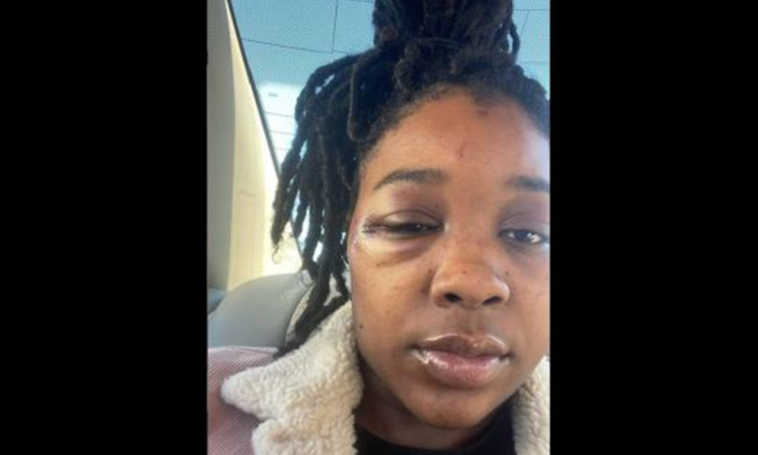Daysheion After a Power and Light District incident last week, Kansas City’s young Black woman Renee Ponds has accused police of abuse. Ponds claims five off-duty police officers assaulted and verbally abused her during her arrest.
Ponds said the fight started on January 28 when she argued with a bartender over an unpaid drink. Despite her claim that she never received the drink and her card was denied, security guards and off-duty officers intervened.
In a disturbing cellphone footage obtained by the Kansas City Star, officers forcefully pin Ponds to the ground and handcuff her while she cries for help. Ponds is also insulted by officers on video.
They said, “We’ll treat you like an animal if you act one.”
Ponds recounted her trauma and surprise at the police’ behavior. She said, “They did things to me they didn’t have to, and it devastated me. I’ll never forget it. My mind dwells on it all night.”
Despite the troubling occurrence, Police Department spokesman Capt. Jacob Becchina said the arrest followed “usual protocol.” He also blamed the onlooker for filming the incident, saying cops can stop such recordings if they interfere with police work.
This incident raised questions about the Kansas City Police Department’s handling of Black people. For its handling of Black cases, the department has been accused of institutional racism and disproportionate force.
In September 2022, Bishop Tony Caldwell criticized the department’s indifference to missing Black women, which were confirmed when a young Black woman was taken and fled. In May 2019, two KCPD officers were found guilty of beating a transgender woman during an arrest, adding to the department’s checkered past.
Daysheion Ponds’ arrest investigation continues, prompting community cries for accountability and justice. The event highlights the ongoing fight against police violence and the need for systemic law enforcement changes.
Daysheion Renee Ponds’ terrifying experience highlights the persistent issues of police brutality and racial prejudice in the US, notably in the Kansas City Police Department. The unsettling footage of Ponds’ arrest highlights the disproportionate use of force against Black people, escalating police enforcement-marginalized community tensions.
The harsh language used by officers during Ponds’ arrest highlights the horrific treatment many Black Americans get from those sworn to protect and serve. Such incidents cause bodily harm, psychological suffering, and law enforcement distrust.
Community leaders and activists have demanded openness, responsibility, and serious action from local authorities after Ponds’ suffering. Ending police racism requires policy and structural reforms to address police brutality and racial injustice.
Ponds’ case exemplifies how citizen journalism and bystanders hold police accountable. Police wrongdoing must be recorded in the age of cellphones and social media to empower marginalized voices and expose institutional injustices.
Kansas City Police’s attempt to blame bystander footage shows law enforcement’s disrespect for accountability and transparency. Such responses erode public trust and widen the law enforcement-community divide.
As investigations into Ponds’ arrest continue, authorities must conduct a full and impartial inquiry, hold those responsible accountable, and enact meaningful reforms to prevent future abuses. This includes tackling implicit bias, poor training, and little accountability in law enforcement.
Police reform should also emphasize the need to reinvest in community-based alternatives including education, mental health, and social assistance. Communities may create safer, more fair societies by addressing crime and socioeconomic injustice.
We must continue to speak up for Daysheion Ponds and other police brutality victims, lobby for serious reforms, and hold those in authority accountable. Only then can we establish a future where everyone is treated with dignity, respect, and legal equality.





One Comment
Leave a ReplyOne Ping
Pingback:Kansas City Mother Charged After Allegedly Putting Infant in Oven
Join the Community and Be a Part of the Conversation
You must be logged in or registered to post a comment.